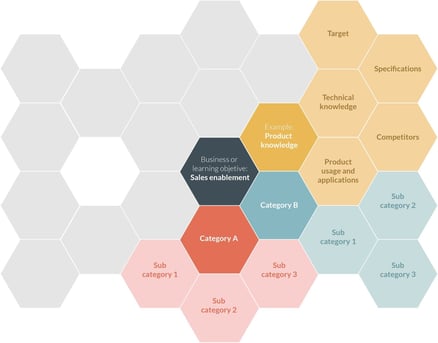Pause, look up from your screen and take a look around you. It is likely that many of the items you see are a product of the Fast-Moving Consumer Goods industry (FMCG). While this may be seemingly insignificant, it is important to know that the sector is responsible for, and influences most of our daily activities – sun up to sun down.
To guarantee the success of these investments in FMCG, even top sales performers need adequate and consistent product updates. .jpg?width=1200&name=1200x627%20(12).jpg)
The $4,059 billion industry gives us most of our everyday items, and top sales leaders with their teams must work hard – quarter after quarter – to deliver consistent profits in the midst of fluctuating market demand, low margins and seismic market changes.
With Amazon setting the pace for in most markets, sales leaders and market participants have been forced to reassess the value of their products and services. In addition to this, analysing customer experience, employee satisfaction, and disruptive business models have become critical to retaining and growing market share in these markets. The ubiquity of online competitors has also made these topics carry more importance for the bottom line and profit in the FMCG industry. But why so - what are the most important issues affecting growth and sales in the consumer goods market?
Leverage digital marketing channels
The first and probably most important trend in FMCG is the increase in digital market channels. This has not only reduced the barrier to entry of new competitors and offerings, but also led to a multitude of secondary factors that could alter the playing ground and strategy for sales leaders in the largest companies. In addition to this, small manufacturers are consistently contributing to the growth of the market, with Nielson attributing 53% of growth in the US retail market to 16,000 small companies which also account for 19% of dollar sales.
This increase in the digital market space has led to the rise of the digital customer. In this respect, factors such as customer experience, marketing promotions, pricing and payment options, as well as loyalty programs have become increasingly important to the FMCG industry in influencing consumers to interact online and give feedback about their experience. Deloitte state in a 2017 research of the Indian market that 71% of Indian shoppers use digital before their purchase journey, and nearly 70% of Indian shoppers prefer digital devices rather than sales associates for in-store activities.
To keep up with the pace of change among these trends and volatility in the digital customers’ preferences, sales leaders and companies in FMCG have increased their social media presence to open conversation with their consumers, using surveys, promotions, partnerships with popular influencers and viral marketing campaigns. Mckinsey highlighted in their article the importance of social media in staying in touch with consumers.

Key data for greater sales performance
These changes across markets – and especially in the FMCG industry – have prompted sales leaders to re-assess their strategy and brand awareness, because while these changes affect quarterly reviews and short-term planning, they also present the opportunities for sales teams and top performers in companies to discover new business models, leverage technologies and further corporate learning for long-term growth and brand loyalty. Businesses now need to raise the knowledge and ability of their entire salesforce and grow a team of top sales performers that deliver consistent results month after month.
The popular quote by Richard Branson goes “Clients do not come first. Employees come first. If you take care of your employees, they will take care of the clients.”. However, while US companies spend an average of $1,459 per salesperson on training, studies show that for traditional curriculum-based training, participants forget 80% present of the information they were taught in 90 days.
If this is indeed the case, then increasing employee engagement through microlearning and gamification can improve knowledge retention by 26% and develop top performers for sales leaders. Delivering key data in smaller packages increase the ability for sales people to retain the information shared.

Similar to how companies market their products and services to customers, top sales leaders must deliver data-driven results that show the effectiveness and performance of their efforts and hard-work. Likewise, growing a team of top performers requires the provision of relevant tools that leverage data, and where possible, visualize the information that is most important. This is critical to understanding the trends and changes in the FMCG industry that determine the next wave of consumer behaviour and preferences. It is key that top sales teams can analyse big data and leverage the benefits and opportunities therein.
The use of data-driven sales creates the potential for greater personalized sales communication with their clients. With 73% of customers identifying customer experience to be an important factor in their purchasing decisions, top sales leaders must make this a part of their sales culture and an intrinsic part of their core strategy. With the GDPR in place, it is also pertinent for top performers to identify a legitimate interest that is relevant to their lead prior to engaging with them.
To create a sales culture where top sales performers focus on providing a high level of customer experience to convert more leads into customers, employees also need to operate in an enabling environment that caters to their continuous learning, career development and incentives. The FMCG industry is fast-paced, and while sales leaders may have a bird’s-eye view of their progress, they should also encourage their teams of top performers to collaborate and work internally across the marketing, legal, product and customer success departments; that they may inculcate this holistic view of the value-chain effect of their activities.
Top sales leaders and the best performers operate like the best brands do. This way, they achieve the results they want and propel their businesses towards success.




-1.jpg)
.jpg)

